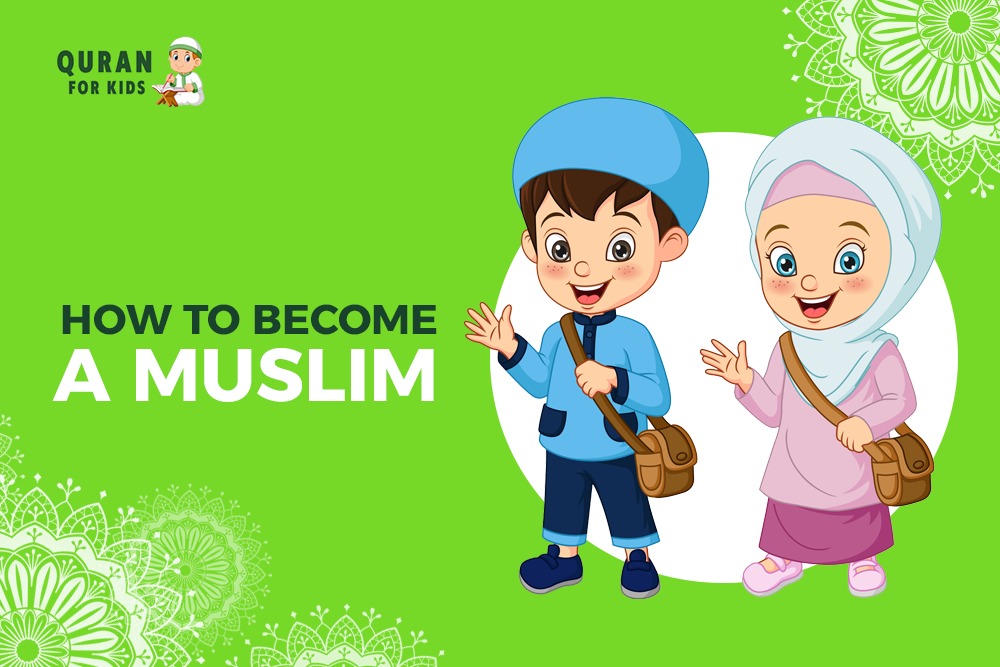How To Become A Muslim
Introduction:
Becoming a Muslim involves making a conscious decision to embrace Islam as one’s faith and way of life. While the process of conversion can vary depending on an individual’s circumstances and cultural background, there are certain steps and practices that are common to most conversions. For many, the decision to become a Muslim is a deeply personal and spiritual one that is based on a desire for meaning, purpose, and connection to a higher power. In this context, it is important to understand the steps and practices involved in becoming a Muslim, as well as the challenges and opportunities that come with this life-changing decision. By exploring the process of becoming a Muslim, we can gain a deeper understanding of the Islamic faith and its teachings, and of the experiences of those who choose to embrace Islam as their way of life.
Islamic resources:
Islamic resources refer to the various tools and materials that are available to Muslims to help them deepen their understanding of the Islamic faith and practices. The Quran, the holy book of Islam, is the most important and fundamental Islamic resource. It is considered the word of Allah and sets out the principles and guidelines for Muslims to follow. Reading and studying the Quran is an essential part of Muslim worship and daily life, and helps to deepen one’s spiritual connection to Allah. In addition to the Quran, there are many other resources available to Muslims. Commentaries on the Quran, Hadith collections, and works of Islamic jurisprudence are all valuable resources that provide guidance and insight into the teachings of Islam. Many of these resources are available online or in print, making them easily accessible to Muslims all over the world. Islamic scholars and teachers also play an important role in providing guidance and education to the Muslim community. They offer lectures, classes, and online resources on a wide range of topics, including Islamic history, theology, ethics, and spirituality. Many mosques and Islamic centers also offer educational programs and resources for Muslims of all ages and backgrounds.
In recent years, there has been a growing number of online resources available to Muslims. Websites, social media platforms, podcasts, and online courses provide a wealth of information and guidance on a wide range of Islamic topics. These resources can be especially valuable for Muslims who may not have access to a local mosque or Islamic center, or for those who are seeking to learn more about Islam in a convenient and flexible way. Overall, Islamic resources are essential for helping Muslims to deepen their understanding of the Islamic faith and to live their lives in accordance with its teachings. They provide a wealth of knowledge and guidance for those seeking to learn more about the Islamic faith, and can help to promote greater understanding and respect among people of different cultures and faiths. By utilizing these resources, Muslims can deepen their spiritual connection to Allah, strengthen their moral character, and contribute to the growth and development of the Muslim community.
How to become a Muslim:
Becoming a Muslim involves making a conscious decision to embrace Islam as one’s faith and way of life. While the process of conversion can vary depending on an individual’s circumstances and cultural background, there are certain steps and practices that are common to most conversions. The first step in becoming a Muslim is to declare the Shahada, which is the declaration of faith that bears witness to the oneness of Allah and the prophethood of Muhammad. The Shahada is considered the most important phrase in Islam and is recited by Muslims all over the world. To become a Muslim, one must publicly recite the Shahada in the presence of at least two witnesses or in front of a Muslim community. After declaring the Shahada, the next step is to perform the ritual cleansing known as Wudu, which involves washing the hands, face, arms, head, and feet in a specific order. This cleansing is necessary for performing the five daily prayers, which are a central part of Muslim worship.
The third step is to start learning about Islam and its teachings. This can involve reading the Quran, the holy book of Islam, and the Hadith, the recorded actions and sayings of Prophet Muhammad. It can also involve attending classes or lectures on Islam, seeking guidance from a knowledgeable Muslim mentor or teacher, and engaging with the Muslim community. The fourth step is to begin practicing the Five Pillars of Islam, which include the declaration of faith (Shahada), prayer (Salat), charity (Zakat), fasting during the month of Ramadan (Sawm), and pilgrimage to Mecca (Hajj) for those who are able. These practices are designed to deepen one’s connection to Allah and to promote spiritual growth and humility. Throughout the process of conversion, there may be challenges and obstacles to overcome. Family and friends who do not understand or accept the decision to convert can create tension and pressure, and a lack of support within the Muslim community can make the journey more difficult. It is important for those seeking to convert to Islam to seek out support and guidance from trusted mentors and teachers, and to find ways to connect with the Muslim community.
Conclusion:
Becoming a Muslim is a life-changing decision that requires a commitment to learning, practicing, and living in accordance with the teachings of Islam. While the process of conversion can be challenging, it can also be a deeply rewarding and fulfilling experience for those who are seeking meaning, purpose, and connection to a higher power. By embracing Islam as their way of life, individuals can join a global community of Muslims who share a commitment to compassion, justice, and service to others, and who seek to deepen their spiritual connection to Allah through prayer, charity, and other practices.
ٌRegister Now

